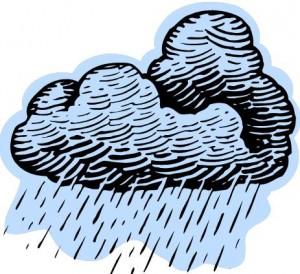SEASONAL AFFECTIVE DISORDER
WHAT IS SEASONAL AFFECTIVE DISORDER (SAD)?
Seasonal Affective Disorder, also appropriately known as SAD, is a type of depression caused by changes in the weather. Seasonal Affective Disorder is also commonly referred to as "seasonal depression" or the "winter blues".
SAD often enters the scene when the days become shorter and we see less and less of the sunshine. Those living in Seattle or the Pacific Northwest are no stranger to this sensation. We spend more time inside trying to pass the time, and often can feel down because of this. There are also biological reasons that we feel down when we are not being exposed to sunshine - decrease in Vitamin D, disruption in our circadian rhythm (biological clock), and overall less fresh air. Research even shows changes in our hormones, and our neurotransmitters (messengers in our brain that can send and receive pleasure, among other sensations). Seasonal Affective Disorder is no joke!.
SYMPTOMS OF SEASONAL AFFECTIVE DISORDER
Common symptoms of Seasonal Affective Disorder include the following:
Feeling depressed or down most of the day, almost every day
Loss of interested in activities you normally enjoy
Difficulties sleeping
Low energy, lethargy
Changes in appetite (increase, decrease, or both)
Irritability
Low motivation
Trouble concentrating or focusing
Feelings of hopelessness
Lower self-esteem
Feelings of guilt
Suicidal thoughts
WINTER AND SUMMER PATTERNS OF SAD
It may come as a surprise to some that Seasonal Affective Disorder can occur for people in both the winter and the summer seasons. The winter pattern is more commonly known by its depressive traits (i.e. lack of motivation and lethargic), whereas the summer pattern has more anxious features.
COMMON FEATURES OF SUMMER PATTERN OF SAD
Agitation or irritability
Insomnia, difficulty falling/staying asleep
Eating less than normal, decreased appetite
Restlessness
Increased symptoms of anxiety
Possible violent or erratic behavior
COMMON FEATURES OF WINTER PATTERN OF SAD
Lower energy than normal
Oversleeping, difficulty waking up
Overeating, increased appetite
Craving carbohydrates (breads, pastas, sugars)
Social withdrawal or isolation
Gaining weight
WHO SUFFERS FROM SAD?
While anybody can be affected by Seasonal Affective Disorder, there are certain factors that make it more common for an individual to experience it. Such risk factors include:
Being female
Being young
Living very far north, or south and having limited sun exposure (far from the equator)
Family history of SAD or other depressive disorders
Personal history of depression or bipolar disorder
TREATMENT & CURE FOR SEASONAL AFFECTIVE DISORDER
THERAPY & COUNSELING FOR SEASONAL AFFECTIVE DISORDER
Seasonal Affective Disorder can be isolating and exhausting. While there is no "cure" for SAD, there are certainly ways to relieve the symptoms. Therapy is an excellent option for relieving the symptoms of Seasonal Affective Disorder and overcoming the barriers it has placed in your life. Therapy can help you increase mood and motivation, while also discovering roots to some of the negative feelings you have been having. It can be a long term or short term solution, depending on your needs and interests. You might consider contacting me for a free consultation to start reducing the impact of SAD in your life.
LIGHT THERAPY FOR SAD
Light therapy has been a common mode of treatment for several years. Light therapy involves exposing yourself to a "light box" for up to an hour a day. Light boxes can be found online, and are often UV-blocking lights that mimic sunshine. This can help with your circadian rhythm (biological clock). Very simply put, light therapy can help your brain boost its ability to create pleasure. If you are interested in therapy for Seasonal Affective Disorder, I have a light box that I keep in the office if my clients are suffering from SAD. You can schedule your free consultation today.
NATURAL SUPPLEMENTS FOR SAD
Some naturopaths or medical doctors may suggest natural supplements to help with SAD. A common natural supplement many doctors suggest is Vitamin D if you are not getting enough sunshine. Before diagnosing yourself and before you decide to take Vitamin D, it is important to talk to your doctor first. Doctors can test if you have low blood levels of Vitamin D and will suggest a recommended dose for you. It is possible to have too much Vitamin D in your system, so consulting with a doctor is vital.
MEDICATION FOR SEASONAL AFFECTIVE DISORDER & DEPRESSION
There are many medications for depression on the market. If you are interested in trying medication, you can find a prescriber in your area. Medication is certainly a good option for some people, however some people like to attempt to treat depression or Seasonal Affective Disorder without medication. This can absolutely be done. Therapy and maintaining a healthy lifestyle are highly recommended to compliment medical treatment. Medications often come with side effects that can impact daily life. It is important to ask your doctor about these when discussing medication options.
